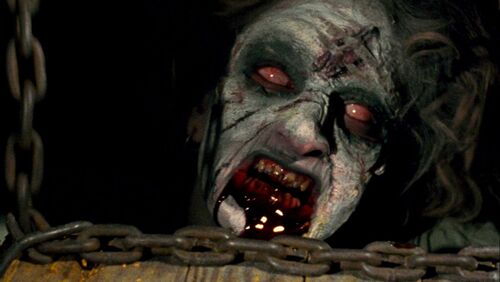 What do you think of when you hear the term, “survival horror”? Aside from maybe, Silent Hill, Resident Evil should be at the tippy top of your thoughts. The video game franchise of Resident Evil came at a time when 3D gaming was a relatively new technological advancement. Gone were the days of 2D and sprite-based games that limited the player’s immersion and the words “cinematic” and “gaming” weren’t often married together... ...Video games were, at that time, still mostly high score based, focusing on the player’s hand-eye coordination and skill-based reaction speed. Then, in late March of 1996, the world was introduced to the terrifyingly realistic 3D world of survival horror. Resident Evil (1996) wasn’t the first 3D game, nor was it the first survival horror game, but much like DOOM (1993) perfected the first-person shooter over the Wolfenstein games, Resident Evil patented survival horror. With full FMV (full motion video) sequences, true 3D maneuverability, beautifully pre-rendered backgrounds, voice acting and cutting-edge graphics, this was a cinematic-like horror experience unlike anything we’d ever seen. Fast forward to 2020, Resident Evil has spawned six numbered main line sequels, several side installments, an internationally lucrative film series and more. Most recently, critically acclaimed remakes of the first two games have proved that Resident Evil is just as relevant as it was 24 years ago. Throughout that time, the franchise has seen several shifts in tone, gameplay and varying results with fan reception. Some have embraced these shifts, while others have heavily criticized them, but now, the general consensus of fans agree that the franchise has boundless potential, despite a few recent content misfires. However, it’s a tough feat for any franchise to remain in that cradle of relevance and success. So, what’s next for Resident Evil? In order to determine where Capcom will take their flagship franchise, we must look at where it’s been lately. The past four years have been kind to Resident Evil. Following the outstandingly high selling, but fan disappointing Resident Evil 6 (2012), we received a franchise makeover with Resident Evil 7 (2017). The reception of the new numbered entry was extremely favorable. Fans embraced the new direction and style, as did critics. Resident Evil 6 had its fans, (I’m one of them) but many were put off by the game favoring over-the-top action sequences and big set pieces over atmospheric dread and survival horror vulnerability. Fans were clamoring for developers to hit the reset button and bring back more horror. That reset button brought back old series’ staples such as inventory management, strategic saving, vulnerability, scares and a new mansion to explore; not too dissimilar to the mansion in the first game. Resident Evil 7 also had a new engine called the “RE Engine” built specifically for the game and future entries. While some striking changes were made, like the first-person perspective and the absence of returning characters, the game was a hit and Capcom was on an upward spiral that had its fans on board for what would come next. In August of 2015, a video dropped that featured producer Yoshiaki Hirabayashi announcing that a remake of Resident Evil 2 (1998) had been approved. The video featured Hirabayashi wearing a shirt with “we do it” printed on it and a TV behind him with titles that simply read “Resident Evil 2 Remake”. Fans rejoiced in the news, but it wasn’t until E3 2018, that Capcom featured an official video revealing the revised look of the new characters and gameplay footage. The game was set to release in January of 2019. To many, Resident Evil 2 is the holy grail of the franchise, so expectations were extraordinarily high. Fortunately, the remake met the expectation of fans and beyond, as it updated the gameplay to a third-person perspective while still retaining the essence and fundamentals of the original. The third-person shift wasn’t too jarring because aside from Resident Evil 7’s first-person perspective, third-person had been the norm since 2005 with Resident Evil 4. The game included the multiple scenario option, as seen in the original version, which added to the game’s replay value. There was also downloadable content added just 20 days after release called “The Ghost Survivors”. These were challenge modes that pitted multiple playable characters of the game against waves of zombies and other time-based challenges. Capcom did mostly everything right with the remake of Resident Evil 2 and even won over the sliver of fan’s who didn’t like Resident Evil 7. With a successful numbered entry and a remake that satisfied fans and critics alike, the bar was set high. Everyone wanted a remake of Resident Evil 3: Nemesis (1999) but I don’t think anyone expected a release so soon. It certainly makes sense though, considering the original game was also released the very next year from the last entry. Also, just like the original, Resident Evil 3 (2020) used the same engine as before (the RE Engine) and could use assets directly from the Resident Evil 2 remake. Development on the game began three years prior to its announcement in 2019, so Capcom had a vision for releasing both games within short distance of each other. The game was met with mostly positive reviews, though some criticized the game for being too short and found the free bundled game, Resident Evil: Resistance to be a lousy excuse for additional content that no one asked for. Aside from the discarded clock tower segment from the original and a few smaller sections, the remake was a faithful enough retelling of the 1999 original. Still, it was considered a step down in terms of content, replay value and length of the main campaign. Drawing from the source material, Resident Evil 2 had the benefit of having two campaigns with multiple scenarios but Resident Evil 3, while it had multiple routes, did not have any additional campaigns. What the original third entry did have was an additional mode called “The Mercenaries: Operation Mad Jackal”. This mode has the player controlling one of the members of the Umbrella Biohazard Countermeasure Service with the objective being to run from one side of the city to the other under a ticking time limit. With limited resources as well as inventory space, the player must survive and also perform special attacks on enemies to gain extra time. A variation of this mode would show up in Resident Evil 4 (2005), Resident Evil 5 (2009), Resident Evil 6 (2012) and the Nintendo 3DS title, Resident Evil: The Mercenaries 3D (2011). The mode has become a beloved favorite amongst fans and the fact that it was not included in the remake of the game that started it was disappointing to most. Resident Evil 3 proves that the franchise is not invincible and like previous failures have taught us; it can happen. It’s been making great strides in the last four years to reclaim its place as being a pillar of excellence in gaming, but the shortcomings of the last remake are leaving fans cautiously optimistic. So here we are now, with the latest remake released and an inevitable rebirth of fan speculation. We all want to know what’s next for the franchise and though we don’t know a lot, there are a few things that hint at a bright future. For one, it seems that Capcom is legitimately interested in fan feedback. They recently invited gamers to a poll that asked us what we liked about the franchise, what we don’t like, which games we favor and a host of other questions that basically allude to, “What do you want from the next game?” To me, this shows signs of both insecurities, but also genuine interest in fans. My initial thoughts questioned their capacity for imagination, because if they were confident in their next installment, shouldn’t they have a creative director who already has a clear vision? Then, I ate my words as I realized that Capcom is doing something that is not normally done by big publishers. I won’t mention names here, but there is a currently released game that I feel quite passionate about and that particular game is riddled with several problems. Fans like myself are sticking by the game, as we believe in its potential, but despite loud attempts to seek answers from the developers, they have been irritatingly silent. We have concerns, questions and ideas that are simply being dismissed and it can wear on a fan, especially if you’ve devoted time and money to it. Capcom, in even the worst-case scenario, are at least pretending to act like they value us. After a year of concerns and pleading falling on deaf ears, it’s nice to see a publisher who attempts to value fan feedback. Perhaps I’m being too optimistic, but I believe that they’re listening. Several sources are making rumblings about leaks and tidbits implying the next numbered Resident Evil entry. Officially though, there still isn’t much to go on. Resident Evil 7’s executive producer Jun Takeuchi stated in a 2017 “making of” mini-documentary that the next mainline installment is already in the works and that Resident Evil 7 is the start of a new series. Pretty vague, I know, but it at least lets us know that a new title has been in early development for a while now. If we take a look at the rumor mill, (which should always be taken with a grain of salt) the fan website, Biohazardcast.com, have been receiving emails from a phantom sender with small tidbits of information. The source suggests that Ethan, from Resident Evil 7 will make a return, as will Chris Redfield. It was also stated that Chris could end up becoming a “villainous” character. The speculated title is “Resident Evil 8: Village”. As the title suggests, the game is supposedly taking place in a rural village in a snowy biome. It’s also said that the traditional zombies will be making a return and the main villain will be a specter-like woman who may actually be an evil witch. Of course, these are all unconfirmed reports and while there may be kernels of truth in all of these rumors, nothing will be officially known until Capcom comes out with a reveal. I have a sinking suspicion that the game will be in first-person, in order to riff off the consistency set by Resident Evil 7. While it would indeed be consistent, I personally hope they go with the mechanically fluid third-person controls, but it all depends on the kind of game they’re making. What works for third-person in one game, may not work well in another. Despite rumors being unreliable, gamers and fans are talking about the next installment. We all have our perfect Resident Evil game in our head and it’s unlikely any of us will get that game, but realistically, I do hope that Capcom have taken a large step back to assess what the best direction should be based on fan feedback. One fan’s feedback may be wildly different from another, but I think all fans can agree that they want “more” content from the next game. It was a shame that Resident Evil 3 didn’t deliver on the packed content that we deserve and have come to know, but I have a lot of faith and confidence in Capcom and know they take this property very seriously. My fingers are crossed that my optimistic predictions are accurate and I think I can speak for all fans that whatever is on our wish lists for the next game, we all want Capcom to make the best Resident Evil game possible. We at Killerhorrorritic.com will continue to cover the next Resident Evil installment as more information becomes available. By Jeffrey W. Hollingsworth
0 Comments
Leave a Reply. |
Archives
March 2023
|
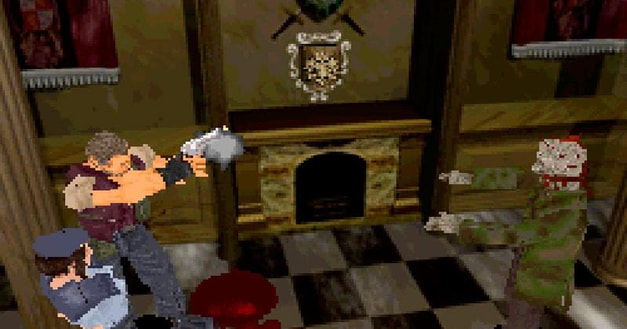
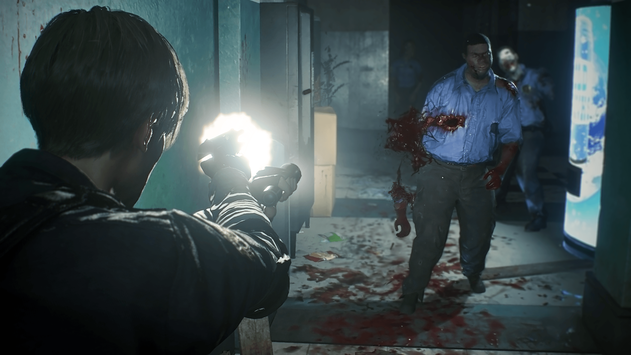
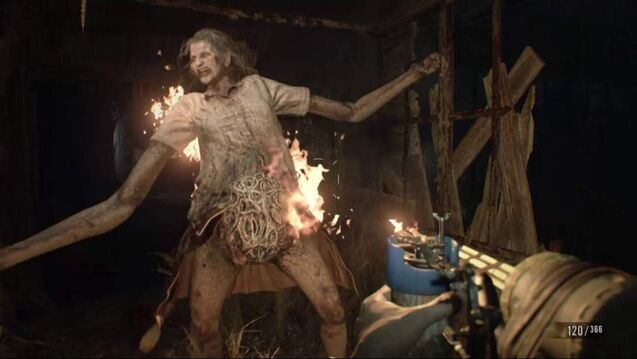
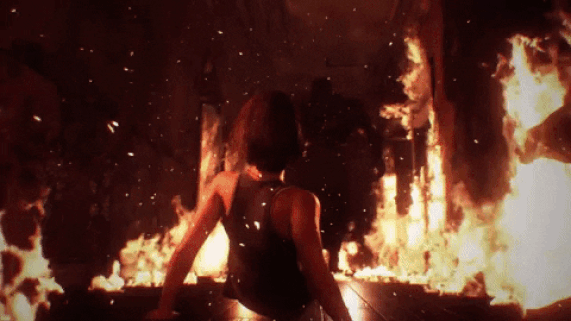
 RSS Feed
RSS Feed